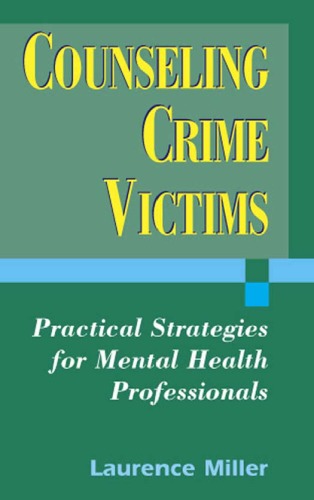

Most ebook files are in PDF format, so you can easily read them using various software such as Foxit Reader or directly on the Google Chrome browser.
Some ebook files are released by publishers in other formats such as .awz, .mobi, .epub, .fb2, etc. You may need to install specific software to read these formats on mobile/PC, such as Calibre.
Please read the tutorial at this link: https://ebookbell.com/faq
We offer FREE conversion to the popular formats you request; however, this may take some time. Therefore, right after payment, please email us, and we will try to provide the service as quickly as possible.
For some exceptional file formats or broken links (if any), please refrain from opening any disputes. Instead, email us first, and we will try to assist within a maximum of 6 hours.
EbookBell Team

4.3
58 reviewsAs more and more mental health professionals are becoming involved in the criminal justice system - as social service providers, victim advocates, court liaisons, expert witnesses, and clinical therapists - there has not been a commensurate improvement in the quality of text material to address this expanding and diverse field. Until now, students and practicing professionals have had to content themselves with either overly broad texts on criminology or trauma theory, or exceeding narrow tracts on one or another sub-area of victim services.
Counseling Crime Victims provides a unique approach to helping victims of crime. By distilling and combining the best insights and lessons from the fields of criminology, victimology, trauma psychology, law enforcement, and psychotherapy, this book presents an integrated model of intervention for students and working mental health professionals in the criminal justice system. The book blends solid empirical research scholarship with practical, hit-the-ground-running recommendations that mental health professionals can begin using immediately in their daily work with victims.
Counseling Crime Victims is a practical guide and reference book that working mental health clinicians will consult again and again in their daily practices. This book will also be of use to attorneys, judges, law enforcement officers, social service providers and others who work with crime victims in the criminal justice system. It can also serve as a college- and graduate-level text for courses in Psychology and Criminal Justice.
Key Features of this Book: